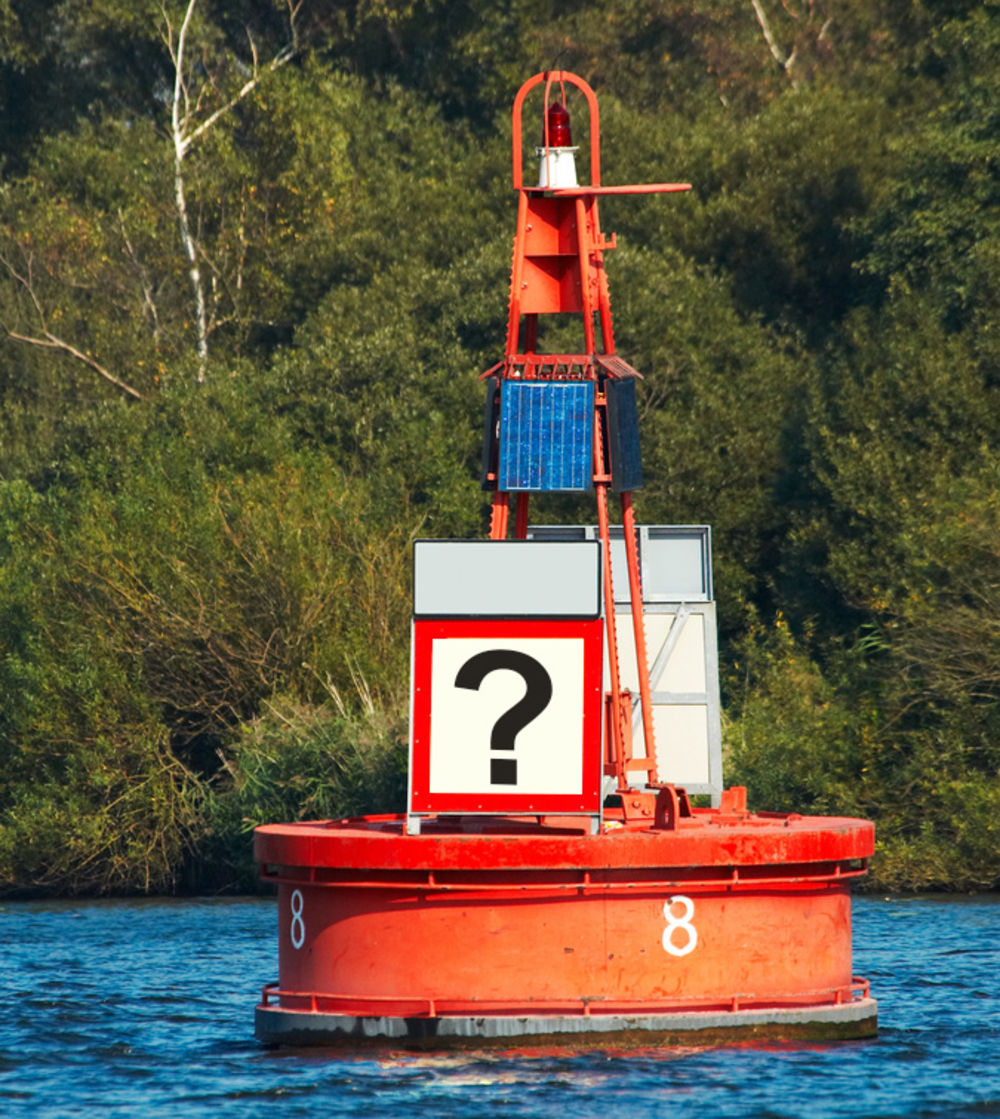
A navigational hazard is pretty clearly defined as something you might hit on the water. A "hazard to navigation," however, could very well be the person at the helm. Insurance claims files show that one of the most expensive claims — as well as one that frequently causes significant injuries — is when a boat hits something while underway. Investigations show that these incidents are almost always avoidable simply by using some common sense and exercising some basic skills.
It was a sunny, calm day with unlimited visibility, a buoy was hit. How did that happen? The answer, according to the owner and skipper, was "his new polarized sunglasses." He was looking at his navigational display, and the polarized lenses of his sunglasses made the screen difficult to read. With his focus distracted, he hit the buoy.
Forget the fact that the buoy was bright red and dead ahead for a mile or so as he approached. Strange things happen on the water, right? Sure, but this incident got me thinking that not all navigational hazards are outside the boat. The more I see helms filled with an array of gadgets, the more I harken back to the good old days when we had a compass, perhaps a depth sounder, and a knot meter. The simple helm — most of today's wonderful technology had yet to be invented — forced us to focus. It made us keep a proper lookout. It made us plan ahead.
Today we may plan our day out on the water the day before, on the computer at home, plug in waypoints, arrive at the boat, push some buttons, and off we go. This, I think, is where the story of "hazards to navigation" begins.
Have you ever punched in directions on your car's GPS, hit "go," then diligently steered the route the machine on your dashboard is dictating to you? Had you paused and thought it through, you might know a better way to get there, right? Well, your boat's navigation equipment can also only do so much of the thinking for you. Consider that jetty inconveniently located between your position and the mark inside the harbor? The penalty for not paying attention and preparing properly may result in you running hard aground on the jetty — or worse.
Technology can only take you so far. You, skipper, need to know what your boat is and isn't capable of. Is your vessel, to put it in legal terms, fit for its intended voyage? Is your boat suited to navigating offshore? How much rough weather can your boat handle? Are you GPS- and radar-equipped?
One thing obvious to people in my line of work is that the primary cause of most, if not all, accidents involving collisions (hitting something moving) and allisions (hitting something stationary) is human error, poor decision-making, and complacency.